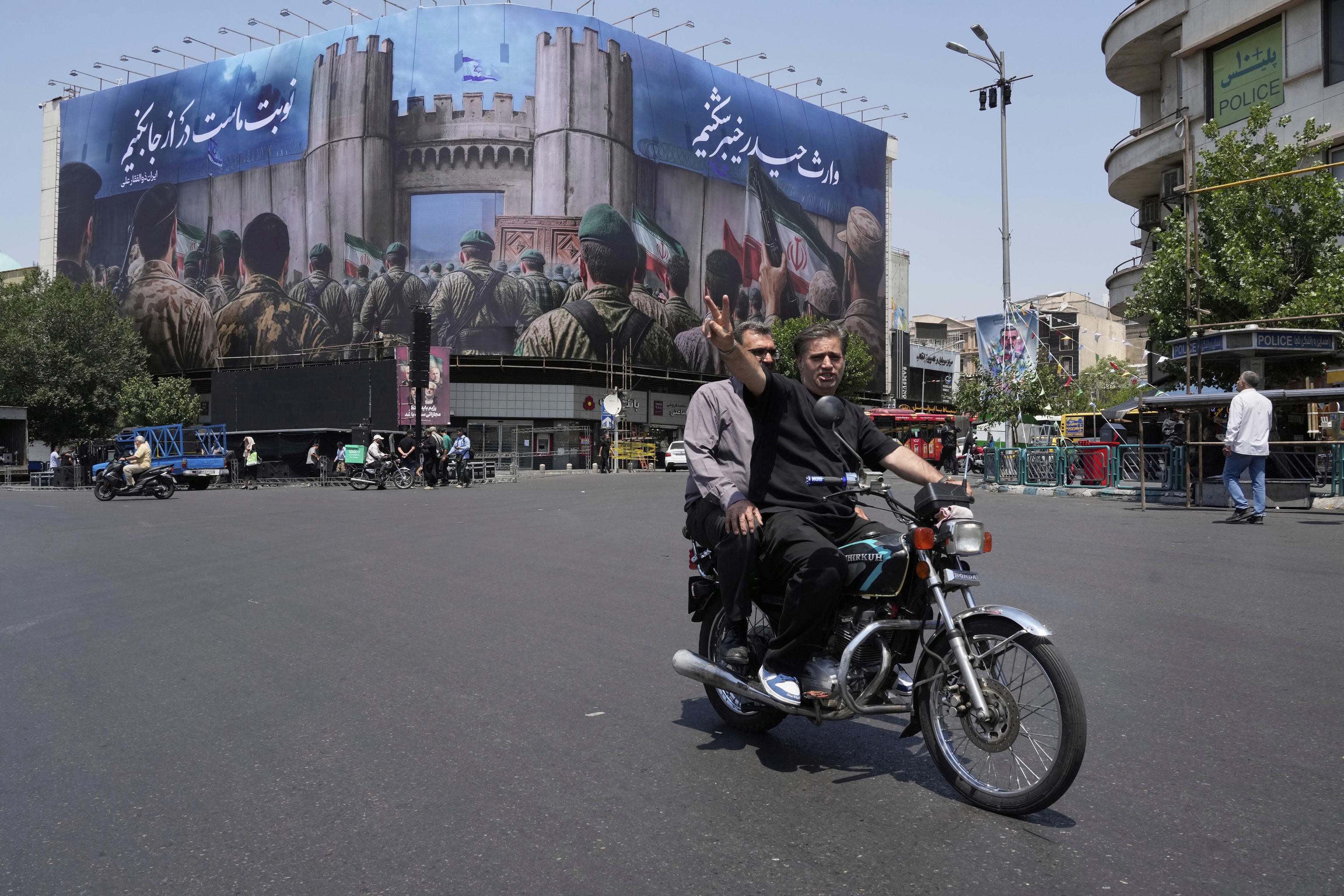"The United States has violated Iranian sovereignty, exacerbated tensions in the Middle East, and dealt a severe blow to the international nuclear non-proliferation regime." This was the strong statement made on Sunday night by China's ambassador to the United Nations, Fu Cong, at an emergency meeting of the UN Security Council. In the same setting, the Russian representative echoed the words of his Chinese counterpart to criticize the US bombing of Iran's nuclear enrichment facilities. A condemnation that was later echoed in similar terms by North Korea.
Iran's main allies align against the attacks by Israel and the US, but none seem willing to go further by offering any specific military support, revealing the increasingly isolated reality faced by the Islamic Republic.
China, Russia, and Pakistan presented a joint resolution calling for an immediate ceasefire. The document demands an agreement that "ensures the exclusively peaceful nature of Iran's nuclear program in exchange for the complete lifting of all multilateral and unilateral sanctions." Terms that Western powers are unlikely to accept. To pass a resolution in this body composed of 15 countries, at least nine votes in favor are needed, with no vetoes from the five permanent members with veto power (US, France, UK, Russia, and China).
Pakistan, another nuclear power, joined Beijing and Moscow after surprising over the weekend by announcing its nomination of US President Donald Trump for the Nobel Peace Prize for his role in resolving Islamabad's recent confrontation with India, when both neighbors exchanged bombings in May. "This intervention is a testament to his role as a true peacemaker," stated a Pakistani release that circulated hours before Washington launched attacks on Iran.
During the Security Council meeting, all participants shared the urgency of ending the conflict, but individual statements were divided into two opposing blocs: the US and its allies justifying the attacks, while China and Russia siding with Iran.
"For 40 years, the Iranian government has called for the death of the United States and the death of Israel, posing a constant threat to the peace and security of the entire world. The time has finally come for the US, in defense of its ally, to act decisively," defended Dorothy Shea, Washington's ambassador to the UN. "Russia strongly condemns the irresponsible, dangerous, and provocative actions of the United States. Washington, once again, has shown total disregard for the international community," stated the Russian ambassador, Vassily Nebenzya.
From Beijing, Chinese spokespersons once again condemned the US attacks on Monday and presented China's credentials as a potential mediator in the conflict, as Chinese leader Xi Jinping did last week during a phone call with his Russian counterpart, Vladimir Putin.
Xi expressed that Beijing was willing to "work with all parties to play a constructive role in restoring peace." Putin mentioned that Moscow could help "negotiate an agreement that allows Tehran to develop a peaceful atomic program while appeasing Israeli security concerns." During their conversation, both reiterated that they could "play a constructive role in restoring peace."
Today, the main Chinese state media have used a more aggressive rhetoric against Washington. "By using bunker-busting bombs to achieve what Israel could not, the US has escalated the war and brought the conflict between Iran and Israel to an uncontrollable state. American bombs have affected the foundations of the international security order. By attacking nuclear facilities under the safeguards of the International Atomic Energy Agency (IAEA), Washington has set a dangerous precedent," states an editorial from the Global Times newspaper.
China's support is crucial for sustaining the economy of the Islamic Republic, helping it navigate Western sanctions by purchasing 90% of its oil exports. The Asian giant demands Iranian gas and oil for its energy security. However, Russia's ties with the ayatollahs' regime are much stronger, and if Tehran implodes, Putin will lose another ally in the region after Bashar Assad's fall in Syria. In Putin's war in Ukraine, Tehran has been a key partner by supplying drones used to bomb Ukrainian positions.
At noon on Monday (local time), North Korea spoke out for the first time, blaming the US and Israel for the explosive situation in the Middle East. "They are guilty of tensions resulting from incessant bellicose moves and Israel's territorial expansion, encouraged by the West," a statement from Kim Jong-un's regime released by the KCNA news agency points out. "The US attack on Iran violently trampled on the territorial integrity and security interests of a sovereign state."
Pyongyang has maintained a close relationship with Tehran for decades. International expert groups claim that both dictatorships have cooperated militarily in the development of ballistic missiles and that now, Kim's regime could assist Iranians in rebuilding the destroyed military facilities.
